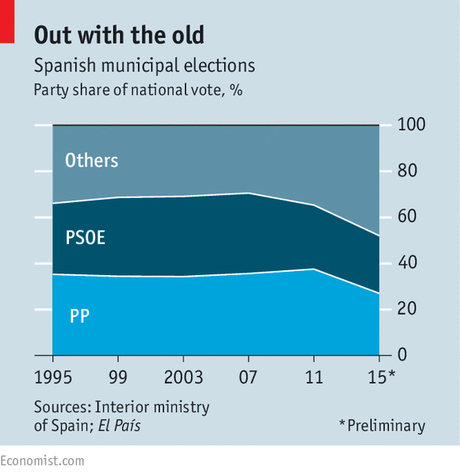
THE regional and municipal elections in Spain on May 24th were billed as the latest test of the idealistic new parties that have emerged all across southern Europe in the wake of the euro crisis. Like Greece’s Syriza and Italy’s Five Star Movement, the left-wing Podemos and liberal Ciudadanos parties promised to give a voice to voters infuriated by corruption and economic hardship, and to shatter the political status quo. They have done so, transforming the two-party system that has dominated Spain since democracy was reintroduced in 1978 into a four-party one. They have also made the country a lot harder to govern.
The conservative Popular Party (PP) of Mariano Rajoy, the prime minister, was able to claim a sort of victory: when all the regional and municipal elections were tallied, it finished first. But its share fell to just over a quarter of the votes. The opposition Socialists (PSOE) of Pedro Sánchez claimed to have launched a comeback, but they were beaten by the PP almost everywhere. Podemos was relegated to third place. Ciudadanos fell short of predictions that it would become Spain’s new kingmaker.
The two…

